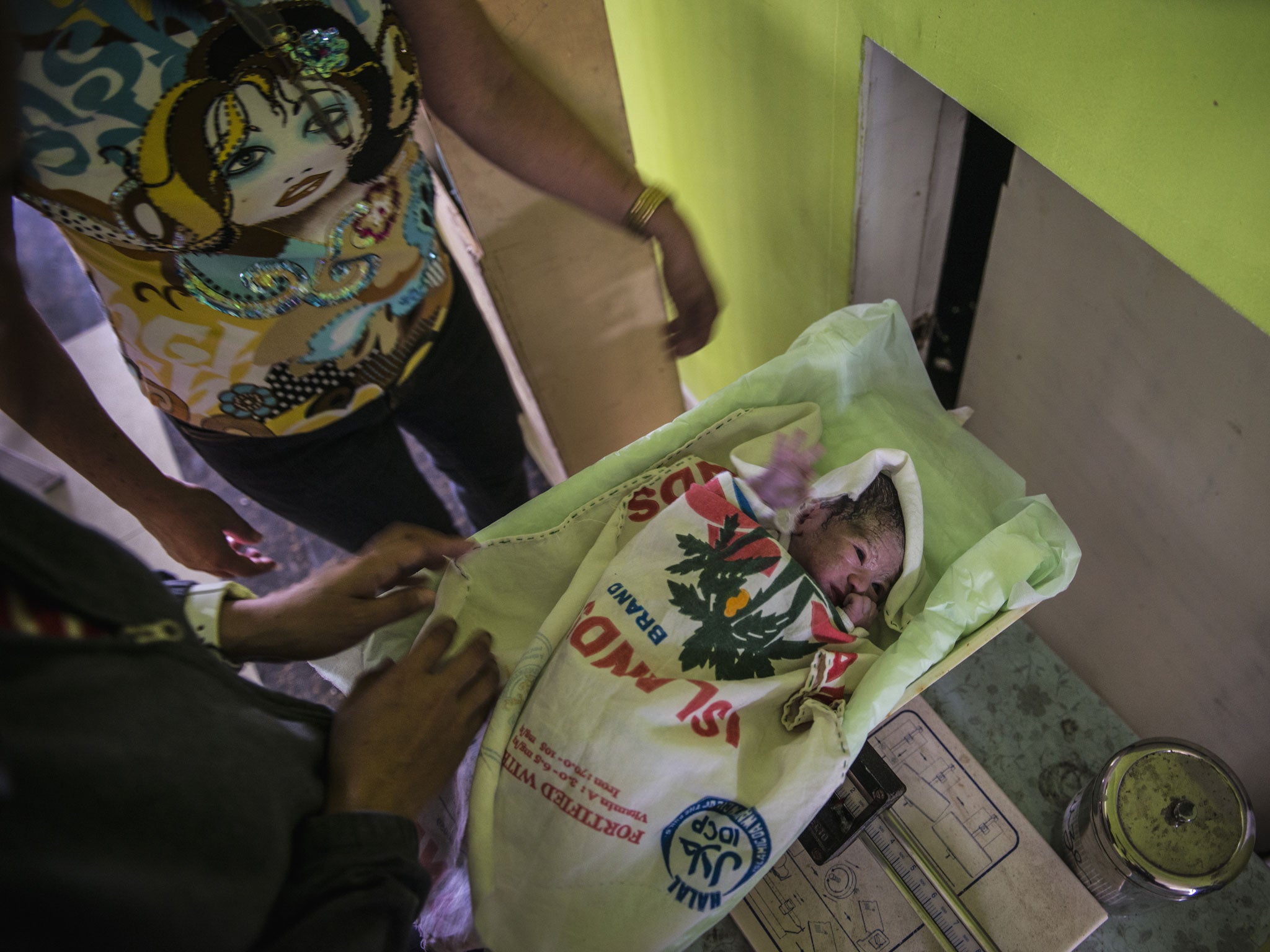He’ll live to see another day – but one million babies do not, Save The Children study says
The first 24 hours of a baby’s life are the most dangerous. As Jonathan Brown discovers, new work by Save the Children identifies what can – and must – be done

A million children each year die on the first and only day of their lives, often after their mothers have been left to give birth alone and unaided in the world’s poorest and most remote regions, according to a major new study of global infant mortality.
Urgent action is desperately needed to end the “heartbreaking and unacceptable” toll which it is estimated could be reduced by half through free basic healthcare and midwifery provision.
Most of these babies die within 24 hours as a result of birth complications including prolonged labour and infection, which are treatable provided help is readily at hand.
But the research by Save the Children estimates that 40 million women receive no trained support during their labour. Two million mothers said they last gave birth completely alone.
Justin Forsyth, chief executive of Save the Children said the figures were “criminal” and the solutions well known. “The first day of a child’s life is the most dangerous and too many mothers give birth alone on the floor of their home or in the bush without any life-saving help.
“We hear horror stories of mothers walking for hours during labour to find trained help, all too often ending in tragedy,” he said.
In addition to the one million birthday deaths, 1.2 million babies succumb during labour, the report found. In 2012, 2.9 million deaths occurred within the first four weeks of life, accounting for two in five child deaths.
Despite rapid international progress, which has seen child mortality halved in the past decade, 18,000 under-fives still die each year, mostly from preventable diseases.
Reducing early life and still births in labour is seen as crucial to meeting UN Millennium Development goal targets by 2015. But time is running out and it is feared that progress towards achieving the targets has stalled.
The charity is now urging politicians, philanthropists and those in the global healthcare and pharmaceutical industries to commit to a five- point “newborn promise”.
The project would see governments promise to tackle the earliest neonatal deaths and to ensure that every birth is attended by a trained health worker by 2025.
More than a million children die on their first and only day of life
Save the Children wants developing countries to increase health expenditure to the World Health Organisation minimum of £40 per person and remove all fees for maternity and newborn care.
Pharmaceutical companies are also being urged to develop new products and to make them available to the world’s poorest families.
Experts say there are a number of simple techniques which could rapidly reduce the death toll. Injections of corticosteroids given to a mother going into premature labour can help a baby’s lungs to develop, giving a greater chance of survival.
Techniques such as kangaroo care in which infants are kept warm through skin-to-skin contact can keep newborns alive in the absence of incubators. An antiseptic gel applied to the cut umbilical cord will also greatly reduce incidence of fatal infection.
Among those factors causing infant first-day deaths were babies being born prematurely or being of low birth weight, the report entitled Ending Newborn Deaths found.
Mothers had typically received poor care and nutrition during their pregnancy.
Children in Sierra Leone experienced the greatest danger on their day of birth with 19 babies in 1,000 dying within the first 24 hours. Following the conclusion of the civil war only one in four mothers had skilled medical attendance during childbirth.
In 2010 the government removed fees for pregnant and lactating women and increased the amount of money it spent on neonatal care. In 2012, six out of 10 births were attended by a trained health worker.
The report noted that much progress had been made in the reduction of infant deaths. But it concluded: “The scale and the inequality of newborn mortality have to be addressed. The incremental changes that we currently see cannot end all preventable child and maternal deaths within an acceptable time frame.”
A spokesman for the Department for International Development welcomed the report. “Ensuring that more babies are born safely and with proper medical care is a central part of our work,” he said. “Since 2011 support from the UK has meant that 1.6 million babies were delivered by trained health workers.”
Join our commenting forum
Join thought-provoking conversations, follow other Independent readers and see their replies
Comments
Bookmark popover
Removed from bookmarks